october 2025, to grinch or not to grinch
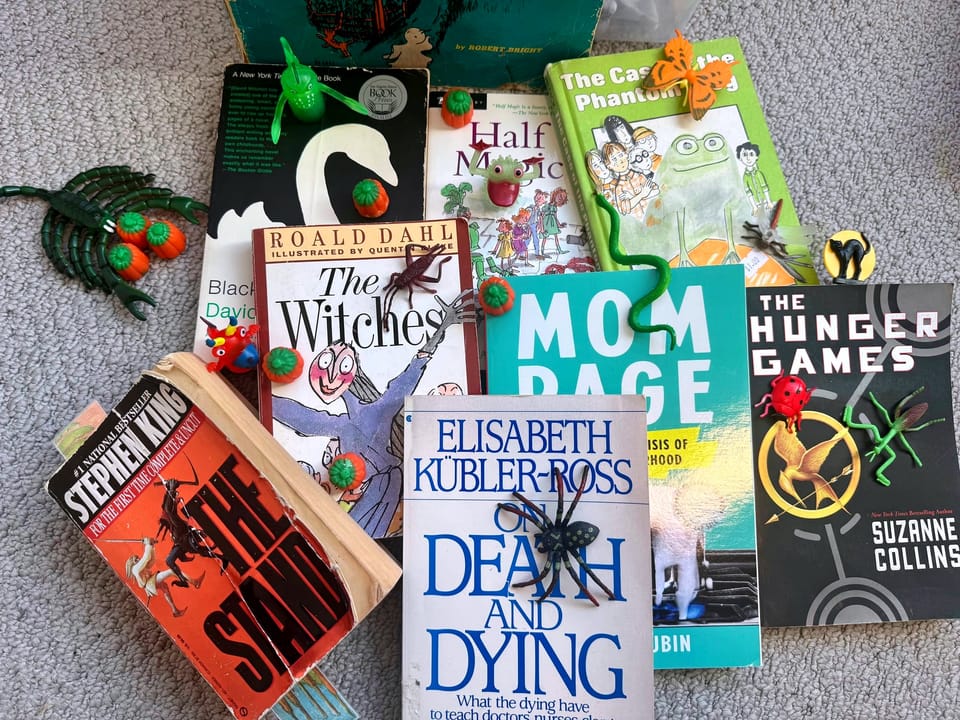
Someone asked me recently why the holidays stress me out. A fair question for someone who doesn't have children or even (literal) nieces or nephews. There's nothing for me to plan; no one expects anything of me during the holidays. I don't even have to buy anything if I don't want to. But logic doesn't care about your feelings, so every year around September, I start to shift into grinch mode. I unconsciously reflect on how heavy the holiday season is. I think about how it's another holiday without Walter, without Mackenzie. Without Gene. Without Celia. For many of my friends, it'll be the first holiday without their dad, or grandmother, or mom. It makes me sad.
In my early childhood, holidays were spent with my aunt and cousins, and I loved them for being chaotic, messy, and full of merriment. I knew my mom and my aunt must have been beyond stressed, as we were poor, but that only made me lean in further and really appreciate what they'd done for us.
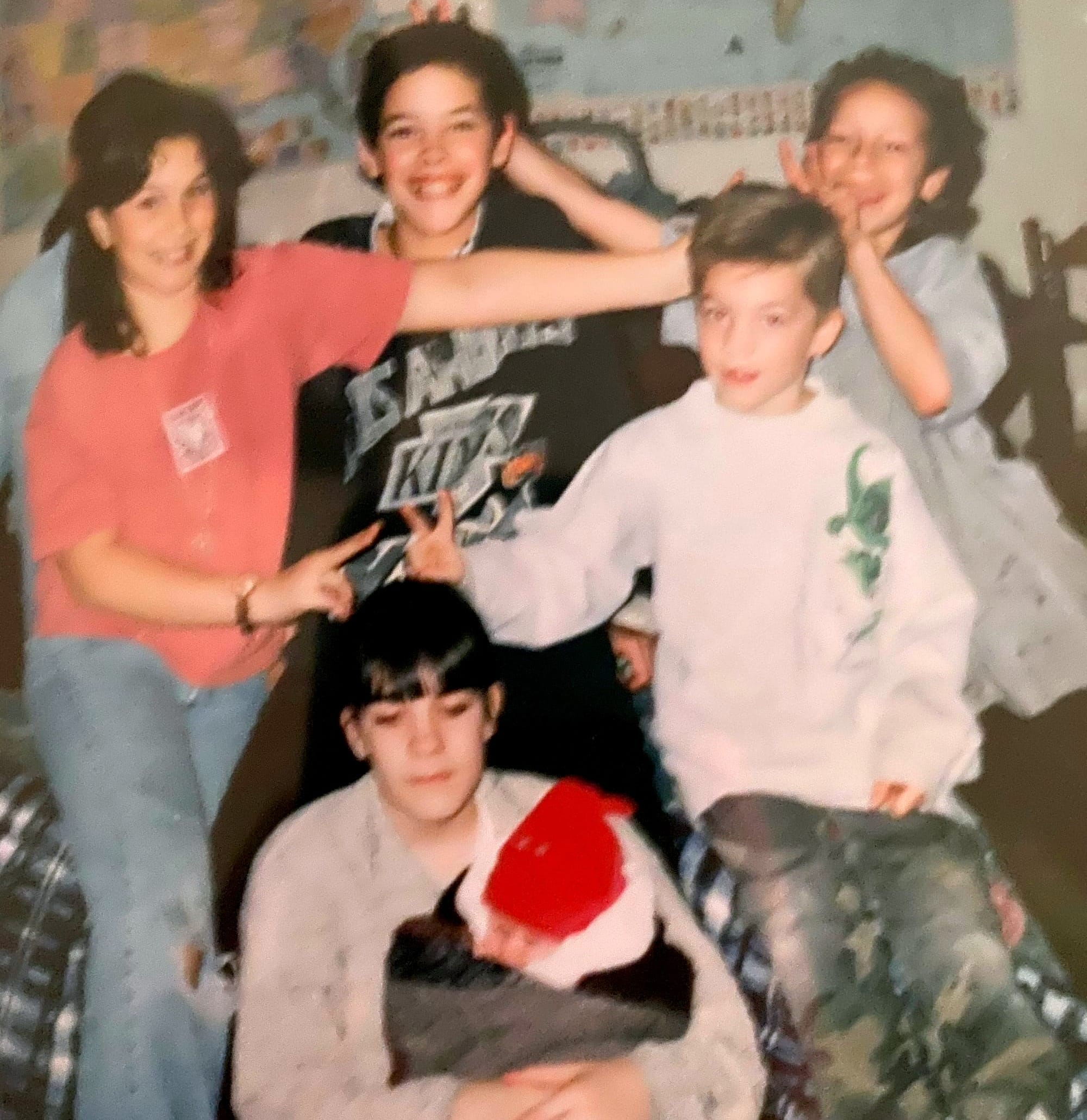
When my aunt and cousins moved away, I tried to keep the same energy and enthusiasm. We still spent a few holidays together, but with the distance, it wasn't possible to do every holiday and birthday together the way we used to. And that made me really sad.
My family kept growing apart, bitter resentment and unspoken hurts, us kids becoming adults, and having our own relationships and friendships and lives and schedules. At some point in my 20s, I began to dislike the holidays, and as I grew older, this dislike intensified.
The magic isn't really there, and, as I've mentioned, there aren't kids in my family, so we don't always give gifts because of that. My family is missing a central location; there's no "home for Christmas" or nostalgia in decor or the tradition of pulling out old, handmade, familiar ornaments. We were displaced every few years; my mom has little to nothing from my childhood.
It's bigger than my own personal history with the holidays. It stresses me out to think about the hundreds of thousands of dollars spent to satisfy the tradition of giving people things, whether they need or want them or not. When I think of christmas, I think of distant relatives spending hundreds of dollars on Amazon.com on knock-off Bluey and Paw Patrol toys for kids who do not need a single new toy.
I struggle thinking about people sleeping outside because they have family they can't be around, or they have no family at all. I think of kids growing up in group homes who either don't receive a single gift or have to pick from a pile of crap repurposed as charity. I think of poor families who cannot afford to buy their kids anything and try desperately to make the memories anyway. I think of dead relatives, of sick relatives, of Joan Didion's daughter's pneumonia that had her in the hospital the week after christmas when her husband suddenly died. Years later, Didion herself died two days before christmas.
But I'm a seasonal person. I drink hot coffee when it's cold and cold coffee when it's hot. I don't want a margarita in the winter, and I don't want an old-fashioned in the summer. I put away my summer clothes in the winter, and I'm not ready to look at my oversized, orange sweaters in July. I'd be caught dead watching Love Actually in the spring, and The Sandlot does not hit in December.
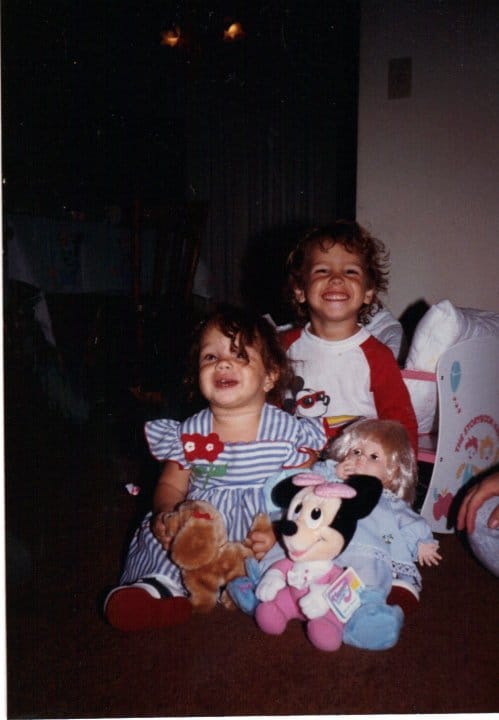
...so maybe I should lean into, not the holidays, but the season. Maybe that means picking up a couple of gifts for my loved ones, sending cards with holly on them, or hanging up the Hanukkah tea towel. Maybe it means reading dense, weighty books and setting rom-coms aside for lighter days. Maybe it means more cinnamon, heartier soups, and baking. Maybe finding a "holiday" joy this year is more about Wintering, a concept coined by Katherine May that I write about later in this bookletter.
For now, here's what I read as the days grew shorter, colder, and harsher, revealing the reality of the holiday season ahead.
[books I read]
Wards of the State: The Long Shadow of American Foster Care by Claudia Rowe (2025) | Quick summary: An exploration of the American foster care system told through six former foster youth.
Well, guys. If you read this book, you'll know a lot about me. You'll know a) the life I narrowly avoided growing up in, b) the demographics of the people I served while working at the Northwest Adoption Exchange for ~6 years, and c) the reason I'm getting a degree in social work. This is a phenomenal exploration, and it's all accurate, real, and current.
[nonfiction, social services and welfare, human rights, written by a white american journalist, medium-length read]
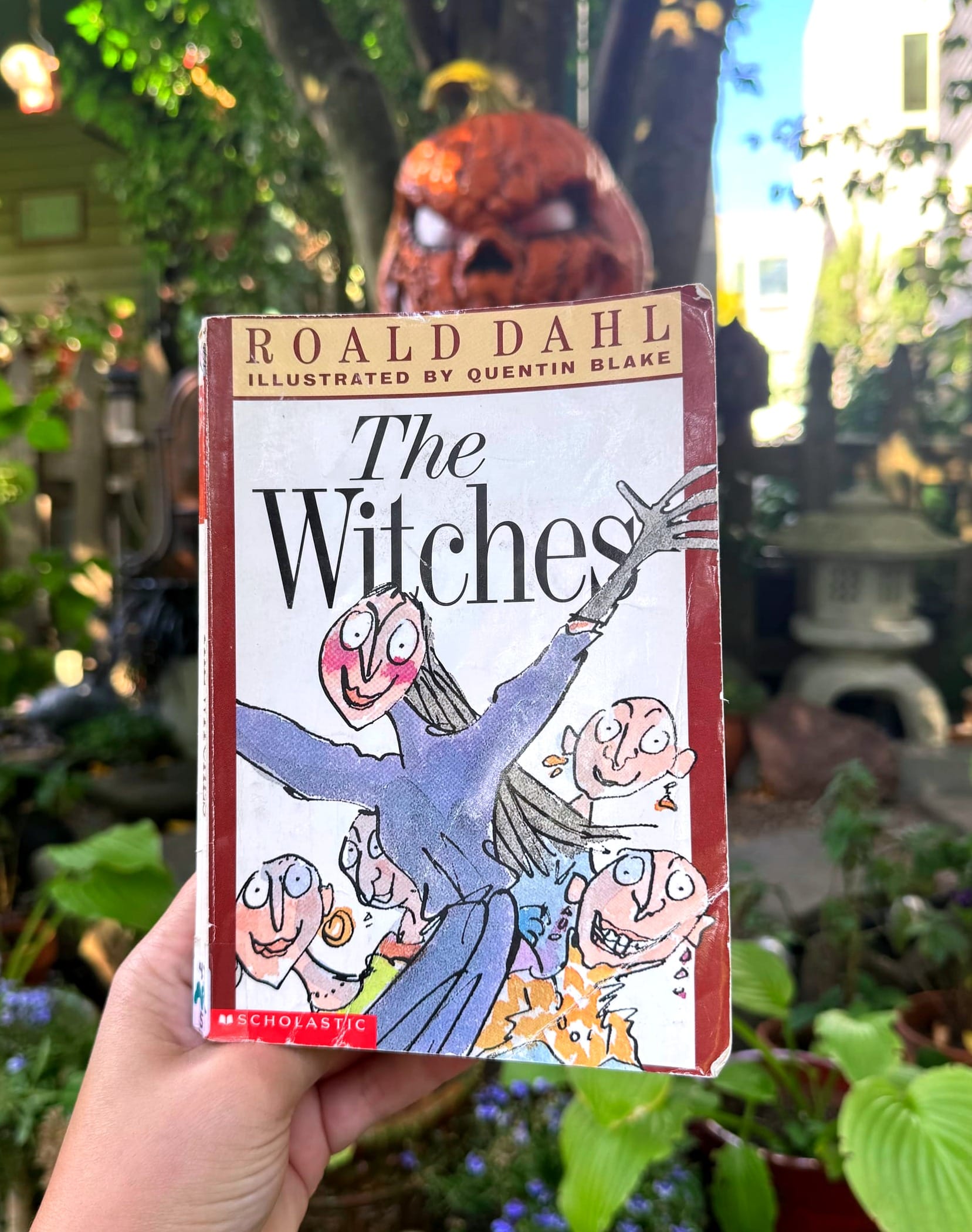
The Witches by Roald Dahl (1983) | Quick summary: A young boy discovers there are child-hating societies of witches that secretly exist in every country, and he has to deal with them!
I said this on Threads, but I don't particularly care about the controversies around Roald Dahl. He's been dead for the majority of my life, and whatever he felt and thought is not my business, whereas, for example, JK Rowling's deep hatred and cruelty is my business. She's still making gobs of money off of her hatred. I digress! Dahl was one of my favorite writers growing up, which isn't a unique or original thing to say, but it is true. Matilda, James and the Giant Peach, Charlie and the Chocolate Factory, and The BFG were all essential to me, and I hope to enjoy them every time I revisit them throughout my life. Though I'd read The Witches before, it wasn't one of my go-tos as a kid, so this is only the second time I've ever read it! It's a charming little story about witches, grandmas, mice, and little boys —a Dahl classic!
[fiction, children's literature, written by a white british author, shorter read]
Understanding the Borderline Mother: Helping Her Children Transcend the Intense, Unpredictable, and Volatile Relationship by Christine Ann Lawson (2000) | Quick summary: An exploration of mothers who suffer from borderline personality disorder and the children they produce who may flounder in life because of it.
I am curious about the book's reception at this point, given that it was published 25 years ago. I took a lot from this book, as someone who wasn't raised by a mother with borderline personality disorder, at least as far as either of us knows. I found myself resonating a lot with the concept of a "waif mother," both considering my aunt and my mother, but my favorite part of this book was getting to tell my therapist, "I guess Mary Todd Lincoln was a real bitch."
[nonfiction, popular psychology, children's psychology, written by a white (?) american clinical social worker, long read]
On Death and Dying by Elisabeth Kübler-Ross (1969) | Quick summary: The famous tome detailing the five stages of grief.
Even before I had a personal interest in grief and death, I knew I'd one day read Kübler-Ross's On Death and Dying. Obviously, there is a wealth of discourse about the five stages of grief, even from Kübler-Ross herself before her passing, but as someone deeply interested in our understanding and navigation of death and grief, I had to read about what we thought of grief and loss at the end of the 1960s. It's great! The five stages of grief, in my opinion, are entirely relevant to this day. I envision this book on my death and grief bookshelf in my office one day. For the record, my edition is the 2003 edition.
[nonfiction, death, grief and bereavement, psychology, written by a white swiss-american psychiatrist, pioneer in near-death studies, author, and developer, long read]
[books I heard]
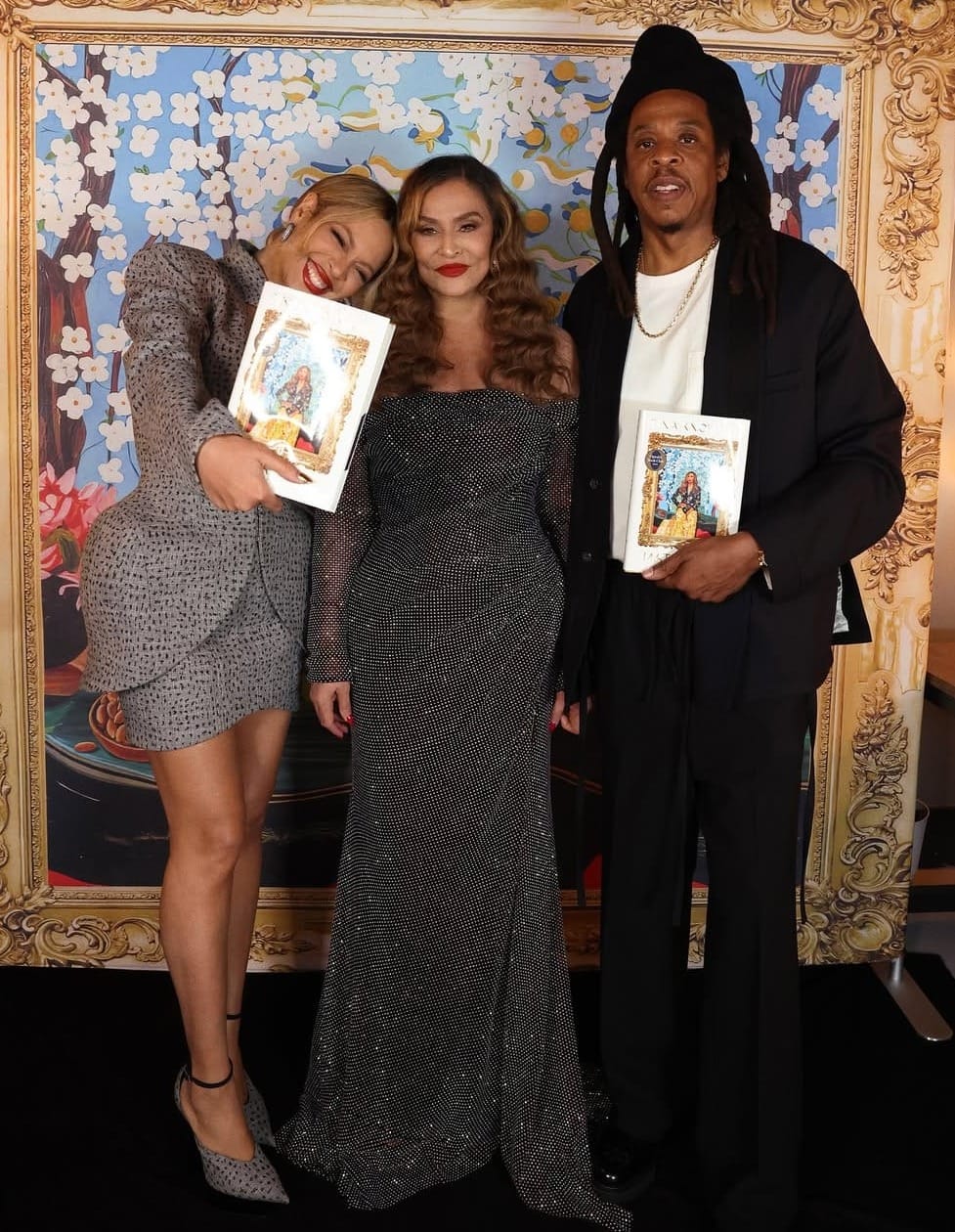
Matriarch by Tina Knowles (2025) | Quick summary: The memoir of Celestine Ann "Tina" Beyoncé Knowles.
This very quickly shot to the top of my favorite celebrity memoirs of all time list. Miss Tina is a force with stories to tell, and baby, tell them she does. Tina's memoir is over 17 hours long in audio, and to me? That's a thrill. Being able to settle in and know that I'll be spending the next 17 hours learning about and reflecting with Tina Knowles? Sign me up. It could have been 17 more hours.
[nonfiction, celeb memoir, written by a Black american businesswoman, fashion designer, author, and philanthropist, long listen, read by the author]
Wintering: The Power of Rest and Retreat in Difficult Times by Katherine May (2020) | Quick summary: An exploration of the ways we can care for and repair ourselves when life is hard, aka the winter.
I've read this book four? times now, so I don't need to say anything about it here except that every time I read it, I love it more. I hope it's sinking in so I can truly embody the concept of wintering each year when it comes back around.
[nonfiction, self-help, motivational, written by a white british writer, podcaster and speaker, medium-length listen, read by rebecca lee]
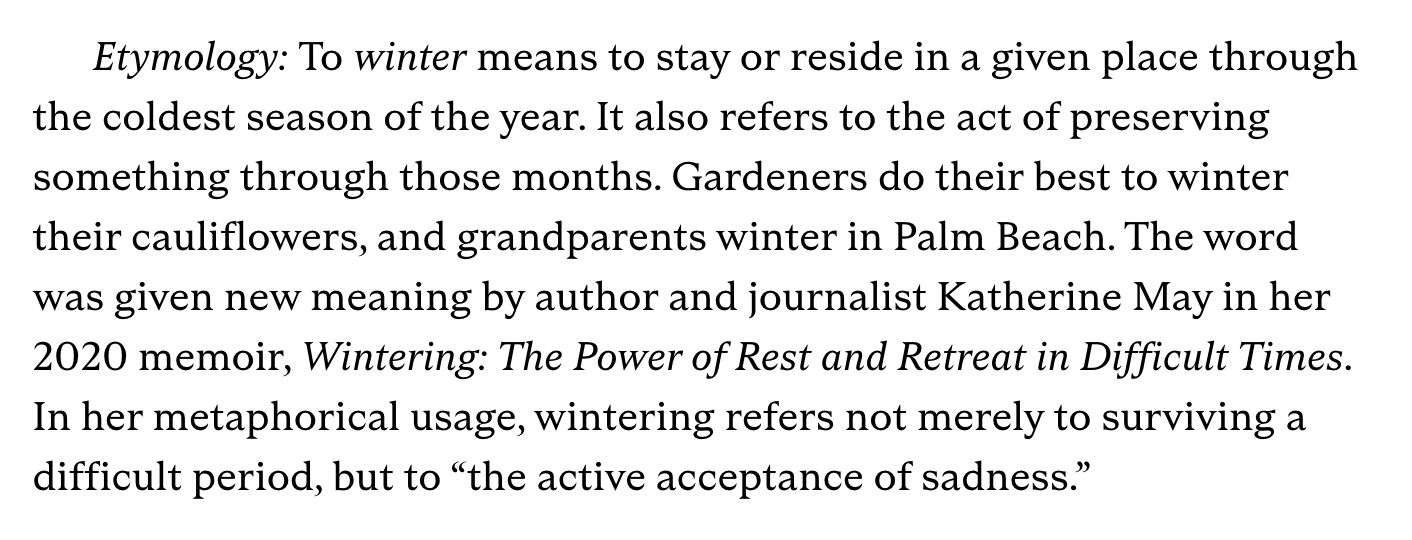
Marsha: The Joy and Defiance of Marsha P. Johnson by Tourmaline (2025) | Quick summary: A biography about the life of Marsha P. Johnson.
There is a specific way Marsha thought of her friends when they died; that she thought of them as existing as a light inside of her. I find that beautiful, and I find the way Marsha lived her life to be beautiful. She was bold, colorful, creative, fun, loving, and sure of who she was. I liked this book and wanted so much more.
[nonfiction, biography, LGBTQ+ history, written by a Black american artist, filmmaker, activist, editor, and writer, long-ish listen, read by the author]
[books I recommend]
- If you are a person who experiences the season of winter: Wintering by Katherine May
- If you appreciate a good memoir and/or consider yourself Beyhive: Matriarch by Miss Tina Knowles
- If you're interested in loss, grief, death, being a person: On Death and Dying by Elizabeth Kübler-Ross and Marsha by Tourmaline
- If you like learning about moms and mothering: Understanding the Borderline Mother by Christine Ann Lawson
- If you want to read one thing I've recommended lately: Wards of the State by Claudia Rowe
See y'all next month!
"In his view, the biggest misconception people had about foster care was the word care, which implied a home, a family, the possibility of love. "It doesn't work like that very often," he wrote. The reality was that foster care trained kids not for productive adult lives, but for success in carceral settings."
Wards of the State
"Would you like a puff of my cigar?" she said.
"I'm only seven, Grandmamma."
"I don't care what age you are," she said. "You'll never catch a cold if you smoke cigars."
The Witches
"Understanding our mother is the first step to understanding ourselves."
Understanding the Borderline Mother
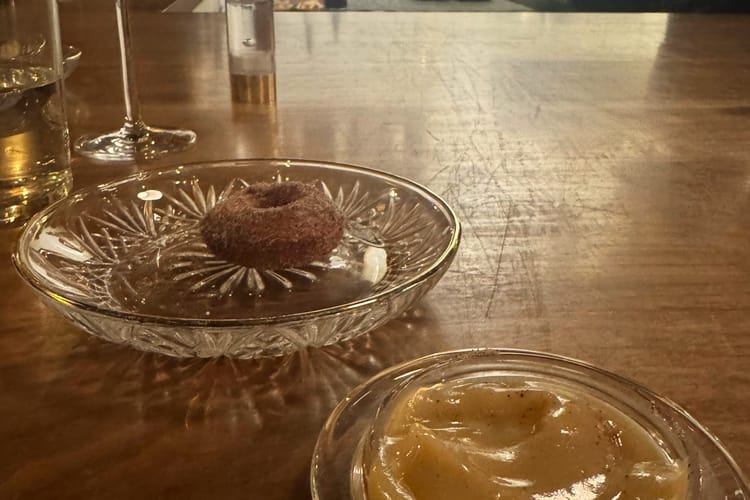
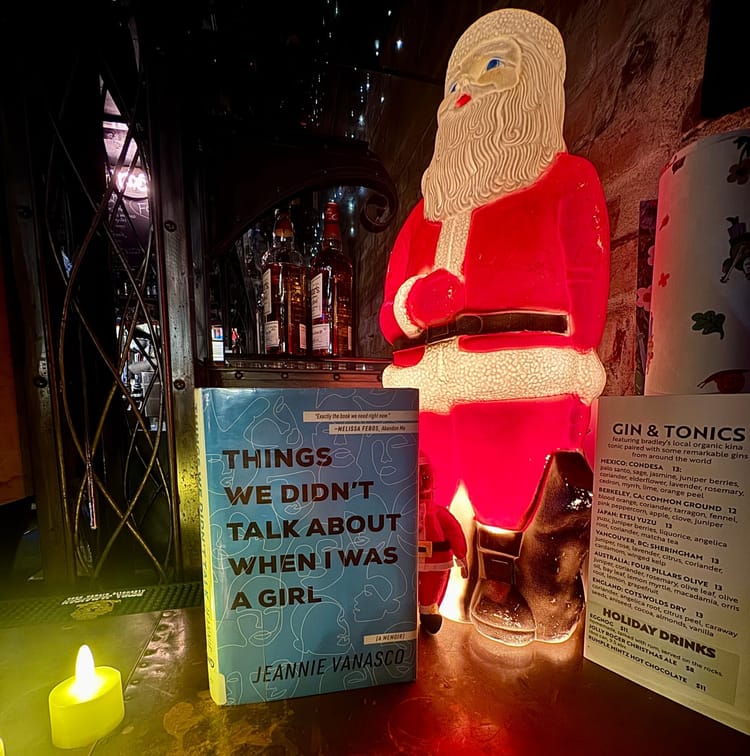
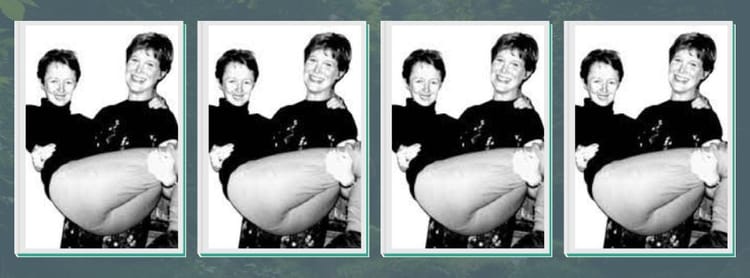
Comments ()